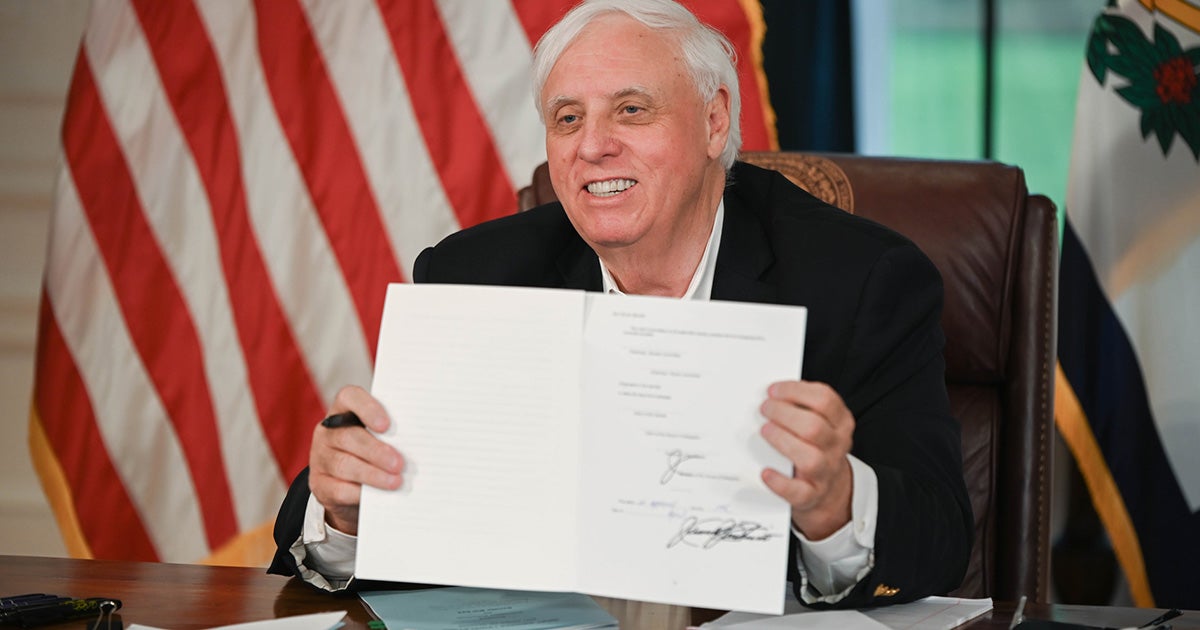
by Mia Gradick • 5 min read
There continues to be renewed hope for religious freedom across America. It’s in large part thanks to First Liberty’s Supreme Court victories in recent years that changed decades of bad precedent. These wins ushered in a new era for religious expression—and gave Americans more religious freedom than they’ve had in 50 years.
Propelled by this string of favorable Supreme Court decisions, state legislatures continue to take positive steps to protect religious liberty. Here’s a quick rundown of several bills that were recently passed or are being considered.
West Virginia Signs Bill That Will Help Protect Religious Groups on College Campuses
West Virginia Gov. Jim Justice recently signed Senate Bill 503 into law. It had passed with strong bipartisan support.
The bill’s passage follows a national trend in which public universities have taken action against Christian organizations that require leaders to be Christian and sign statements of faith affirming their religious convictions.
The legislation will protect “freedom of association and nondiscrimination against students and student organizations” on public college campuses.
The bill extends existing West Virginia law, which declares that “a state institution of higher education may not deny a religious, political, or ideological student organization which is open to all students any benefit or privilege made available to any other student organization by the state institution of higher education, or otherwise discriminate against an organization” based on “the expression of the organization.”
Learn More:
The Christian Post: West Virginia, Utah Pass Laws to Protect Religious Freedom
‘Religious Freedom Restoration Act’ Signed into Law in Utah & Iowa
Iowa Gov. Kim Reynolds this week signed into law the Iowa Religious Freedom Restoration Act. In Utah, Gov. Spencer Cox recently signed a similar bill.
These bills prohibit the government from substantially burdening a person’s right to exercise religious freedom unless the burden is essential to furthering a “compelling governmental interest” and is the least restrictive means of furthering that interest.
The language mirrors the federal Religious Freedom Restoration Act, one of the most important laws protecting religious liberty. That law states the federal government must accommodate religious practices when it can. It also gives citizens their day in court when they believe the federal government has violated their rights.
About half of all states have their own RFRAs with varying degrees of protection. Some states have looser and broader RFRAs, while others have statutes or even constitutional provisions that offer much stronger religious liberty safeguards.
Out of all 50 states, Utah currently ranks 11th and Iowa 33rd when it comes to protecting religious liberty, according to the 2023 Religious Liberty in the States Index—published by First Liberty’s Center for Religion, Culture & Democracy.
Having a RFRA is a key measure of how well a state protects religious freedom. Adding that crucial safeguard to their laws or constitution is certainly a positive for people of faith in these two states.
Learn More:
National Catholic Register: Iowa Governor Signs Religious Freedom Restoration Act
Idaho Signs Bill to Protect Faith-Based Adoption and Foster Care
The governor of Idaho recently signed H. 578 into law. The legislation protects the rights of faith-based adoption and foster-care providers to serve children in need and work to find them loving homes.
This bill passage follows a string of discriminatory actions against faith-based agencies and foster-care providers that operate in accordance with their religious beliefs and moral convictions.
Learn More:
Minnesota Lawmakers Push for Religious Freedom Protections in Controversial Gender Identity Bill
There is ongoing debate in Minnesota over the so-called “Human Rights Act.” It’s working its way through the state Legislature and poses a threat to religious freedom. The legislation would add “gender identity” as a protected class to state law.
Lawmakers and many religious leaders in the state worry the bill in its current form could create a problem for religious groups or organizations. The Act contains no religious exemptions for people of faith.
State lawmakers are strongly pushing to add language that explicitly protects religious freedom to protect people of faith from this bad bill.
Learn More:
World News: Minnesota’s attack on religious liberty
Minnesota House of Reps.: Rep. Jacob: A Religious Freedom Eliminated from State Law